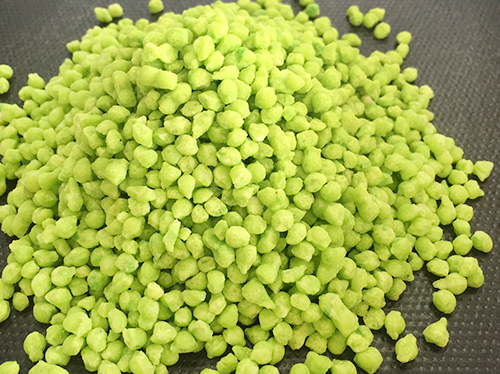
Contact us
Jason_Wang
Phone :+86 159 6139 7807
Email :[email protected]
Webside :shjrhg.com.cn
Address :Liangyungang City,Jiangsu Province,China

Property ammonium sulfate [(NH4)2SO4] is short for ammonium sulfate, also known as fertilizer powder, which accounts for about 0.7% of the total output of nitrogen fertilizer in China. It is one of the earliest nitrogen fertilizer varieties in China. It contains 20.15%-21% N and 24% S. It can be used as sulfur fertilizer. Ammonium sulfate is white or yellowish crystal. Ammonium sulfate, a by-product of industry, is often grey-white or pink because of its small amount of impurities such as thiocyanate (NH4CNS) and iron salts. The bulk density is 860 kg/m 3. Ammonium sulfate is easily soluble in water. It can dissolve 75 g in 100 ml of water at 20 C, showing a neutral reaction.
Because the product contains a very small amount of free acid, sometimes it is slightly acidic. Ammonium sulfate has low hygroscopicity and is not easy to agglomerate, but its critical relative humidity is 81% at 20 C. Once it is absorbed and deliquescent, it is difficult to break up after agglomeration. Long-term application of ammonium sulfate will leave more sulfate ions (SO42-) in the soil, and sulfate will increase acidity in acidic soil. In alkaline soil, calcium sulfate (gypsum) will form insoluble calcium sulfate, which will cause soil consolidation. Therefore, it is necessary to increase the application of farm manure or nitrogen fertilizer varieties, and stone can also be applied in acidic soil. Gray and sulfur are also essential nutrients for crops, but under flooding conditions, sulfate radical will be reduced to harmful substance hydrogen sulfide (H2S), which causes rice roots to darken and affects the absorption of nutrients by roots. It is necessary to combine drainage and sunning, improve aeration conditions and prevent the production of black roots.
Ammonium sulfate is dissolved into ammonium (NH4+) and sulfate (SO4-2) in soil solution after it is applied to soil. It can be absorbed by crops or adsorbed by soil colloids. Because of the selectivity of nutrient absorption by crop roots, the amount of ammonium ions absorbed is much larger than sulfate, so ammonium sulfate belongs to physiological acid fertilizer. After applying ammonium sulfate to acidic soil, ammonium ions can exchange hydrogen ions on soil colloids, and can be absorbed by crops to secrete hydrogen ions (H+) from roots, thus enhancing soil acidity. Calcareous soil is alkaline because of its high content of calcium carbonate. Ammonium sulfate decomposes under alkaline conditions to produce ammonia, which will cause nitrogen loss. It must be applied in depth and covered with soil.